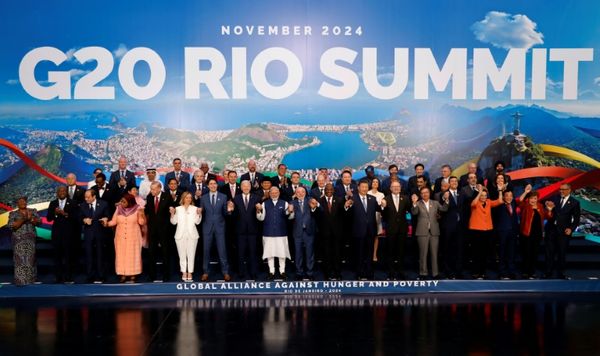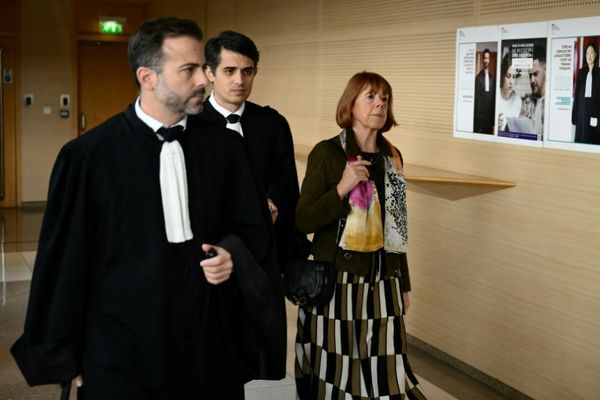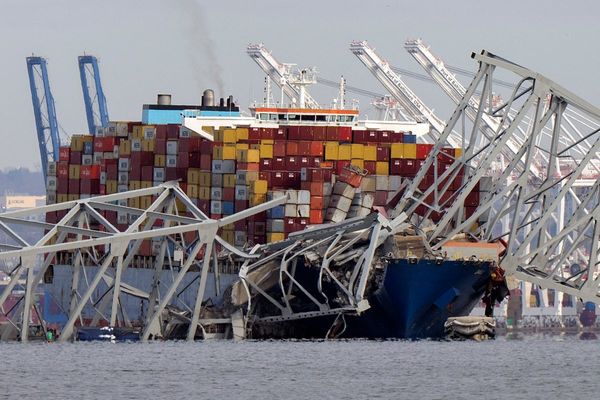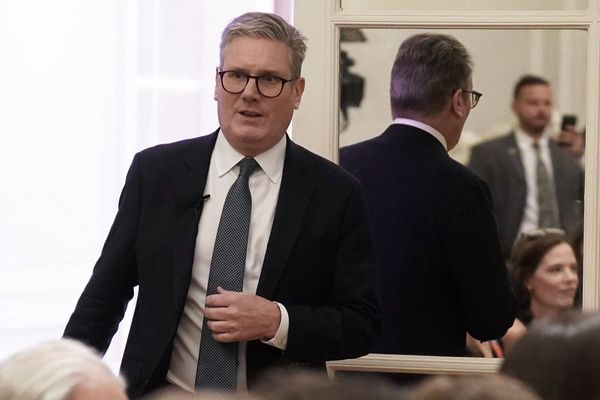
The UK government has conceded that Australia was mistakenly included on a list of countries that were expected to sign up to a US-UK civil nuclear deal.
The Albanese government flatly denied media reports on Tuesday that it would join the UK and the US in a collaboration to share advanced nuclear technology. The UK and the US announcement said they would speed up work on “cutting-edge nuclear technology”, including small modular reactors, after inking a deal at the Cop29 UN climate summit in the Azerbaijani capital of Baku.
The UK government’s original media release noted Australia was one of 10 countries “expected” to sign on to the agreement, but mention of Australia was removed a short while later. The other nine countries were also removed.
An Albanese government spokesperson said “nuclear power is outlawed in Australia”, but Australia was an observer to the agreement “to continue to support our scientists in other nuclear research fields”.
“As Australia does not have a nuclear energy industry, and nuclear power remain[s] illegal domestically, we will not be signing up to this agreement,” the spokesperson said.
“The Australian Nuclear Science and Technology Organisation is an observer to the Gen IV Forum negotiations at Cop29. We will remain an observer. Our observer membership allows our scientists to collaborate with international research efforts in areas such as high temperature material, advanced manufacturing and nuclear safety.”
A senior British government spokesperson told the Guardian that Australia had “not signed up on the agreement as part of the Gen IV international forum [on nuclear]”.
They said the UK “has a proud partnership with Australia on renewable energy and will continue to cooperate with the secure clean energy for families and businesses”.
Australia’s inclusion on the nuclear list made political waves in Canberra after being reported by the ABC, and was seized on by the opposition leader, Peter Dutton.
Dutton said Australia’s climate and energy policies looked like an “embarrassment” at Cop29 because they did not include nuclear technology.
The acting prime minister, Richard Marles, told question time Australia was not signing up to the deal.
“It is an agreement which goes to civil nuclear energy – that means nuclear reactors which provide energy to cities and to electricity grids, and we do not have that in this country, and so as a result … this agreement is not relevant to Australia,” Marles said.
The Australian climate change and energy minister, Chris Bowen, and the UK minister for energy security and net zero, Ed Miliband, on Tuesday morning in Baku signed a climate and energy partnership to cooperate on renewable energy technology and investment and help “coordinate global climate action under the Paris agreement”.







